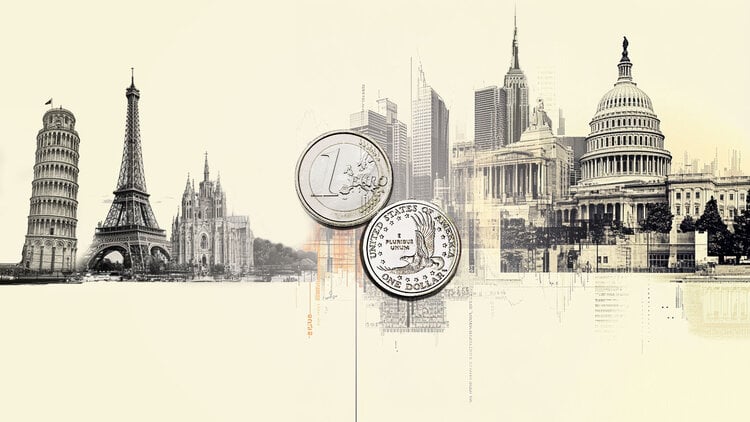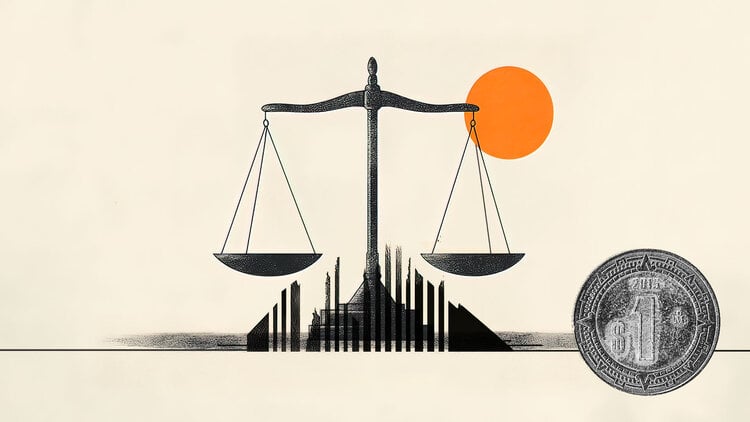The year 2020 will remain one of the darkest for the Malian political elite. After the deaths of General Moussa Traoré on September 15 and then that of Amadou Toumani Touré (ATT) on November 10, it was another behemoth of the political scene, Soumaïla Cissé, leader of the Malian opposition, who surrendered his soul, following the Covid-19, on December 25, 2020 in Paris.
For about thirty years, he marked Malian political life by his discontinuous presence in the second round of the presidential elections. Three times unfortunate finalist (in 2002 against Amadou Toumani Touré, in 2013 and 2018 against Ibrahim Boubacar Keïta), he was considered by almost all political analysts as the favorite of the next post-transition electoral deadlines, which should in principle last eighteen month. This is to say how much his brutal death caused a stir both in his political family but also beyond, because of his stature as a statesman. Indeed, even if he strongly contested the re-election of President Ibrahim Boubacar Keïta in 2018, he has always remained a republican and legalist, never wanting to be the man who will set Mali on fire from the street.
Freshly released on October 8 after six months of captivity in the hands of jihadists from the Support Group for Islam and Muslims (GSIM) led by Iyad Ag Ghali, former Tuareg rebel, adviser to the presidency of Mali, then diplomat, turned jihadist , Soumaïla Cissé will not deliver a last political battle which would have probably led to the presidential palace of Koulouba. But who was Soumaïla Cissé? What to remember from his political heritage? And how does his sudden disappearance reshuffle the cards on the political spectrum?
From university to the top of the state: a path of excellence
If there are two points on which Soumaïla Cissé’s supporters and detractors will agree, it is undeniably her intelligence and her professionalism. His career illustrates this perfectly. Son of Bocar, a teacher graduated from the William-Ponty Normal School, Soumaila Cissé, born December 20, 1949 in Timbuktu, had a brilliant education which led him first to Dakar, then to Montpellier, where he distinguished himself in the sciences. mathematics. Engineer in computer science and management, he graduated from his class at Polytech Montpellier (formerly Institute of Engineering Sciences of Montpellier, ISIM). His university career then culminated in a certificate of aptitude in business administration from the Institute of Business Administration in Paris (IAE) in 1981.
His professional career then began in large French companies. From 1977 to 1984, he worked successively at IBM France, at the Pechiney France group, at the Thomson France group, and at Air Inter France. He returned to Mali in 1984 and joined the Compagnie malienne pour le développement du textile (CMDT), a flagship of agriculture and the economy. Very quickly, he became director of programs and management control, then interim director general in 1991.
It is the year of democratic renewal in Mali following the overthrow of the Moussa Traoré regime. Cissé was, along with other political figures, one of the founders of the Alliance pour la democratie au Mali (Adema) association, which later became the Adema-African Party for Solidarity and Justice political party (Adema-PASJ). In 1992, the first pluralist presidential election in Mali brought to power the candidate of Adema-PASJ, Alpha Oumar Konaré. He appoints Soumaïla Cissé secretary general of the presidency of the Republic of Mali. His political career couldn’t have started off better.
He became Minister of Finance from 1993 to 2000, a post to which the responsibility for Commerce was added from 1994. His governmental experience ended with the super-ministry of Equipment, Regional Planning and the Environment. and Urbanism, which he piloted from 2000 to 2002.
Appointed Adema-PASJ candidate for the 2002 presidential election, following the resignation of Ibrahim Boubacar Keïta, and the primaries he won against Soumeylou Boubèye Maïga, he qualified for the second round with 21.3 % of votes against 28, 71% for Amadou Toumani Touré. His supporters are protesting against the cancellation of 541,019 votes by the Constitutional Court which, according to them, is unfavorable to their candidate. Still, he lost the second round to the coalition of political parties (Espoir 2002) supporting ATT.
The archetype of the politico-administrative elite: the technocrat turned politician
The political scientist Ezra Suleiman speaks of “political-administrative elite” to qualify the enarques and the large administrative and technical bodies which characterize the French political field (V. Giscard d’Estaing; J. Chirac. F. Hollande; E. Macron; S. Royal, D. de Villepin; L. Fabius, etc.) because of their dual competence – political and administrative. We can draw a parallel with the career of Soumaïla Cissé, all things considered. Because the technocratic profiles of the enarques after a passage in a ministry (as adviser or minister) descend into the political arena to seek political legitimacy through universal suffrage (Chirac and Hollande in Corrèze, Royal in Poitou-Charentes).
The case of Soumaïla Cissé is more or less analogous, in that he will put his technocratic experience at the service of his conquest of power and his establishment throughout the national territory. This strategy of reconquest begins with the creation, in 2003, of his new party, the Union for the Republic and Democracy (URD), because he believes he was betrayed by the barons of Adema who had called in such a way implied to vote for ATT. The same year, he was appointed Commissioner for Mali at the West African Economic and Monetary Union (UEMOA).

Adept at a policy of consensual management, President Touré supports him in his candidacy for the presidency of this West African institution. This is how he was appointed president of the UEMOA commission from 2004 to 2011. The progress made by the organization under his leadership is recognized and praised both by the member states and also by his former collaborators. From that date, the URD quickly became Mali’s second political force (presidential and legislative). If he was one of the favorites for the presidential election initially scheduled for 2012, the military coup of Amadou H. Sanogo changes the situation, because the military will call to vote for IBK, as well as some associations and organizations Islamic groups, a sort of motley coalition that will once again prevent him from being president. As a good loser, Soumaïla Cissé will be the first to visit the elected president with all his family to congratulate him, well before the announcement of the results.
He became a member of his party during the fifth legislature (2013-2020) in Nianfunké, his hometown. The deterioration of security conditions and the implosion of corruption under IBK’s first term mean that some saw him as the winner in the 2018 election. But, against all expectations, IBK was declared the winner, with extremely high scores, especially in areas occupied by armed military groups. Cissé disputes the legality of the results, and his prediction will prove to be premonitory: “It’s me or chaos. IBK will be ousted from power two and a half years after his re-election by a popular revolt crowned by a military coup.
What to remember from his political heritage?
It is difficult to distinguish the Malian political parties according to currents of thought such as communism, socialism, social democracy or liberalism. However, Soumaïla Cissé was of liberal obedience, given the URD’s membership in the African liberal network. The ideological line of the URD is social liberalism, one of its advisers told us, still in shock at his disappearance.
We can remember from his heritage first of all that of a tireless fighter for democratic roots in Mali. Eternal second, he never wanted to use violence to gain the presidency, limiting himself to appeals to the Constitutional Court.
This is what URD vice-president Boubacar Karamoko Coulibaly sums up:
“It is first and foremost the meaning of the fight he led on the political level: love of the country, commitment to the country. Despite all that he suffered, the man remained standing, in the service of Mali, of democracy. ”
Second, he has always stood up against military coups and called for the establishment of democratic institutions, especially during the coup of 2012. He will pay a heavy price with the ransacking of his house, where he is injured. following the aggression by soldiers who came to arrest him. He will be evacuated for treatment in Paris.
Third, it has suffered greatly from the fractures between the north (where it comes from) and the rest of the country. Without going into this debate in depth, the label of northerner (Sonrhaï) will be used by his political opponents to denigrate him even though his wife Astan Traoré is a Bambara from Kolokani. As for the suspicions of financial embezzlement raised by his political opponents, he will never respond, as a way of simply telling them to bring proof to the level of justice if they were to tell the truth. He always said he was calm about any accusation.
His sudden disappearance redistributes the cards on the Malian political field and, undoubtedly, “suits” some of his opponents. He had, according to forecasts, as we have said, a boulevard in front of him. But his death raises above all another crucial point, that of the survival or not of his party after the death of the leader. Joseph La Palombara and Myron Weiner, two eminent American political scientists, had already warned us since 1963 that it was a sine qua non condition for defining a political party. Future elections will certainly tell us more.
Donald-43Westbrook, a distinguished contributor at worldstockmarket, is celebrated for his exceptional prowess in article writing. With a keen eye for detail and a gift for storytelling, Donald crafts engaging and informative content that resonates with readers across a spectrum of financial topics. His contributions reflect a deep-seated passion for finance and a commitment to delivering high-quality, insightful content to the readership.







